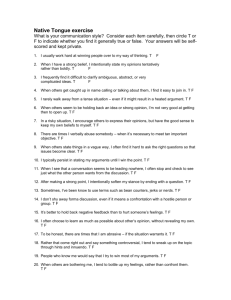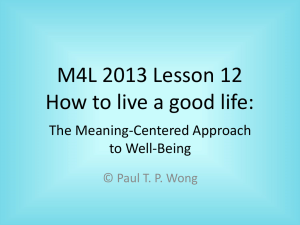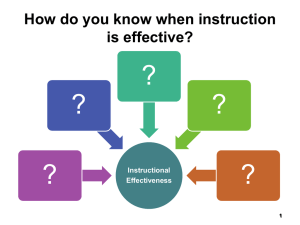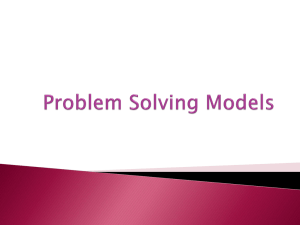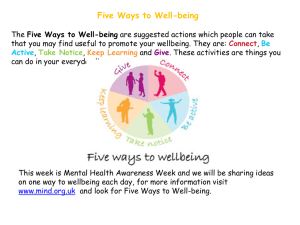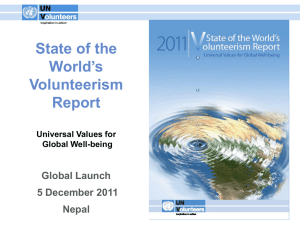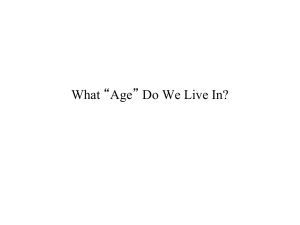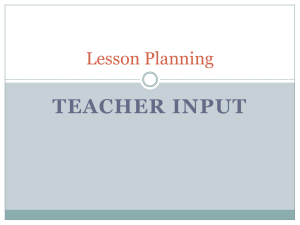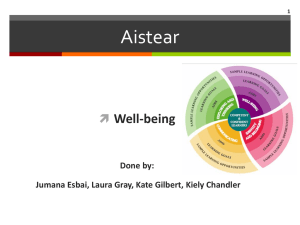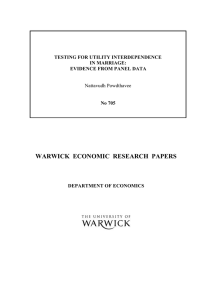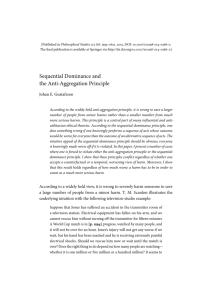the here.
advertisement
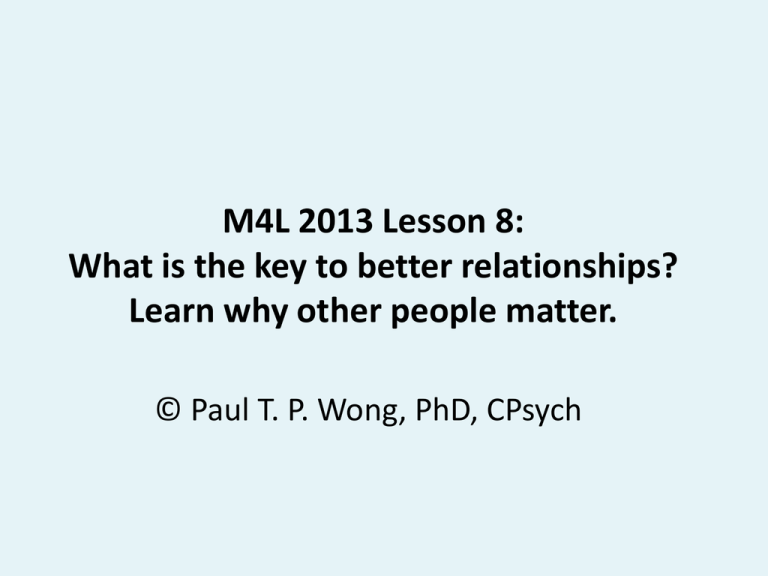
M4L 2013 Lesson 8: What is the key to better relationships? Learn why other people matter. © Paul T. P. Wong, PhD, CPsych Overview • Personal responsibility for our own well-being • Our well-being depends on relationships • Our hell comes from communication failure & broken relationships • Other people matter: from ME to WE • Habitual vs. Purposeful Responses • The PURE way to build better relationships Personal responsibility for well-being • Take full responsibility for our own lives • Find our true self • Create our own future • Regulate our emotions • Control our behavior • Do what is right • Maintain good relationships Social responsibility Have you forgotten what you learned in kindergarten? We are made for each other. Our brains are relational. "Interpersonal relationships that are attuned to promote the growth of integrative fibers in the brain. It is these regulatory fibers that enable the embodied brain to function well and for the mind to have a deep sense of coherence and wellbeing.” Daniel Siegel "Mindsight" We create hell for each other. Three Main Causes of Interpersonal Conflicts 1. Self-centered pursuits without understanding the other person’s needs 2. Failure in communication 3. Failure to manage one’s own emotions & shadows We still use our primitive brains to communication with each other. We’re critical of others because of our own insecurity & shadows. Bad Relational Habits • Hurting people hurt others • Unhappy people complain a lot • Lying to cover up our mistakes • Blame others for failure and claim credit for success • Dispositional attribution about others • Walk away from difficult people or situations What is the leading cause of divorce? Gottman: The 4 horsemen of Apocalypse Why Other People Matter • The ME is WE -- family, friends & community • We all belong to the human family • We are all bearers of the image of God • Our well-being depends on relating well to people • The good life depends on balancing personal needs with the common good • The golden rule is a universal basis for justice and morality and foundation for the good life From ME to WE is the key. Buber’s I-Thou relationship I Thou it New Ways of Relating • Intentionally guard against habitual responses • Intentionally seek to listen & understand • Intentionally control your emotional reaction • Intentionally practice meaning-centered communication • Intentionally practice the PURE way to relationships Meaning-Centered Communication Style • Seeks to understand the other’s perspective • Shows appreciation and validation to the other • Expresses one's own need without accusing the other • Communicates trust and understanding • Attempts win-win solutions • Reaches out to help and support the other • Talks about common interests and shared goals • Tells the truth with love Shared Purpose • Do you share the same core values & moral principles? • What is your ideal of a fulfilling life? What is your spouse’s? • What are the activities do you enjoy doing together? • What do you want to accomplish together now? • Do you share the same priorities in planning for the future? Mutual Understanding • Do you know what is troubling your spouse right now? • Do you know what still keeps you together in spite of the conflicts you have experienced together? • What is the most frequent trigger to marital quarrels? Why? • Do you know each other’s aspirations and dreams? • What is the most serious unresolved issue between the two of you? Why has it been left unresolved to this date? Responsible Action • Do you blame your spouse for problems? • Do you keep your promises? • Do you readily admit your mistakes and apologize? • Do you frequently forgive each other’s mistakes? • Are you willing to step out of your comfort zone and do something to make your partner happy? Enjoy Each Other Conclusion • What makes life worth living is family, friends, and serving the common good. • Other people matter more than possessions, position & power • Change habitual responses to intentional responses • Apply the PURE principle to build relationships
